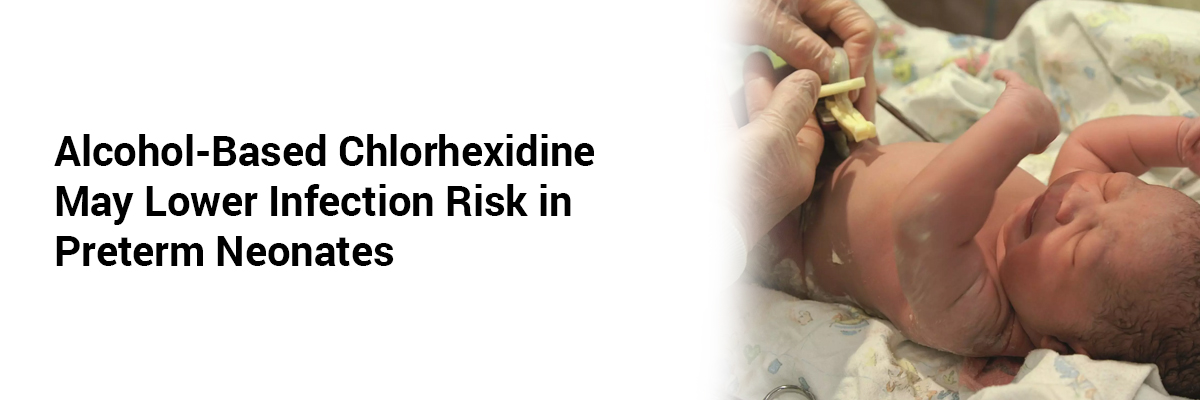
 IJCP Editorial Team
IJCP Editorial Team
Alcohol-Based Chlorhexidine May Lower Infection Risk in Preterm Neonates
Skin antisepsis was recognized as a key measure to prevent central line-associated bloodstream infections (CRBSIs) in neonates. However, the use of alcohol-based chlorhexidine had been limited due to concerns about skin injury.
A double cohort study published in the Archives of Disease in Childhood - Fetal and Neonatal evaluated whether using alcohol-based 2% chlorhexidine instead of aqueous 2% chlorhexidine could reduce CRBSI rates without increasing skin complications.
A total of 1783 neonates and 2493 central line episodes were analyzed. Clinical and demographic characteristics were similar across both periods. The study was conducted over two 3-year periods, separated by a 1-year washout. The first period used aqueous chlorhexidine, and the second used alcohol-based chlorhexidine. In extremely preterm infants, aqueous chlorhexidine was used during the first week of life in both periods.
A significant reduction in CRBSI incidence was observed with alcohol-based chlorhexidine (4.03 vs 9.05 episodes/1000 catheter days; OR 0.45, 95% CI 0.29–0.68). The absolute risk reduction was 0.039, and the number needed to treat was 25. A non-significant reduction was noted in extremely preterm infants during the first week (OR 0.43, 95% CI 0.134–1.379).
Further, no significant difference in skin lesions was found between groups, with erythema being the most common (5.1% vs 4.2%). Alcohol-based 2% chlorhexidine appeared to be safe and effective for reducing CRBSIs in neonates.
(Source: Archives of Disease in Childhood - Fetal and Neonatal Edition. 2025:fetalneonatal-2024-327728. https://fn.bmj.com/content/early/2025/02/03/archdischild-2024-327728.citation-tools)

IJCP Editorial Team
Comprising seasoned professionals and experts from the medical field, the IJCP editorial team is dedicated to delivering timely and accurate content and thriving to provide attention-grabbing information for the readers. What sets them apart are their diverse expertise, spanning academia, research, and clinical practice, and their dedication to upholding the highest standards of quality and integrity. With a wealth of experience and a commitment to excellence, the IJCP editorial team strives to provide valuable perspectives, the latest trends, and in-depth analyses across various medical domains, all in a way that keeps you interested and engaged.




















Please login to comment on this article